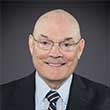Ask Phil: Having a family doctor may be essential to your health
Written by Phil Moeller, UnitedHealthcare Contributor, Medicare And Retirement Expert
In an era of on-demand virtual health care, including powerful remote health monitoring devices, it’s important to remember that the vital and time-tested standard of medicine remains having an enduring relationship with a primary care physician (PCP).
“There is no substitute for a continuing relationship with a PCP,” says Dr. Jennifer DeVoe, a PCP and chair of the department of family medicine at Oregon Health & Science University.
This means not only staying on top of ongoing preventive care but also building and maintaining accurate medical records.
“Having electronic records that are shared between PCPs and patients also enhances their ability to communicate and stay connected on what issues are most important,” Dr. DeVoe said. “As health care gets even more complicated with new drugs, treatment, surgeries, etc., PCPs will become even more valuable as trusted resources.”
DeVoe’s patients say having the personal touch and attention of a primary care doctor adds to their sense of well-being.
Lynn Garcia, has been seeing Dr. DeVoe for nearly 20 years and says, “She is just a phenomenal doctor.”
Lynn has chronic joint issues that have required roughly two dozen surgeries. Through it all, she says having a primary care physician helped her stay on track with her health, while receiving the support she needed to get through recovery.

For Jennifer Laughlin, having a primary care physician advocating on her behalf has been a huge asset. She said she was able to get proper diagnoses for different health issues through Dr. DeVoe, who worked directly with medical specialists.
In addition, there are a number of health benefits that may be correlated to having a PCP, which has been established by extensive research. This often may amount to nothing less than longer and healthier lives. This was found to be the case in one recent study that determined that cellular aging was noticeably slower in patients with continuous PCP relationships.
I asked the lead author of that study – Dr. Peter Baltrus at the Morehouse School of Medicine – whether the answer might just be that people who value PCP relationships were healthier in the first place and took better care of themselves. On the contrary, he said that study participants were in worse health than the general population.
“According to Anne Gagliotti, the primary care physician on our research team, as a general rule, people are more likely to have a primary care physician or usual source of care if they have poorer health status,” Dr. Baltrus said, “because it requires them to come in more to have their diseases actively managed and these folks are more likely to get sick.”
Dr. DeVoe says she understands it may be hard to find a PCP — particularly for healthy young adults, who may feel they don’t need to see a doctor, unless they’re sick.
“My advice for those who do not have a PCP and may not understand how it feels, (is to) ask them to think about other continuing relationships that matter – perhaps with a teacher, minister, coach, choir director, hairdresser, massage therapist, chiropractor, family member, friend, co-worker,” she said. “What is it about the relationship with this person that is important? Having people ‘in your corner’ who know you and understand you is important for wellness and happiness.”
For more information on Medicare plans available in your area, visit uhc.com/medicare.
Author bio

Philip Moeller is the principal author of the Get What’s Yours series of books about Social Security, Medicare, and health care. Read his Substack newsletter and his posts on Threads @healthauthor.